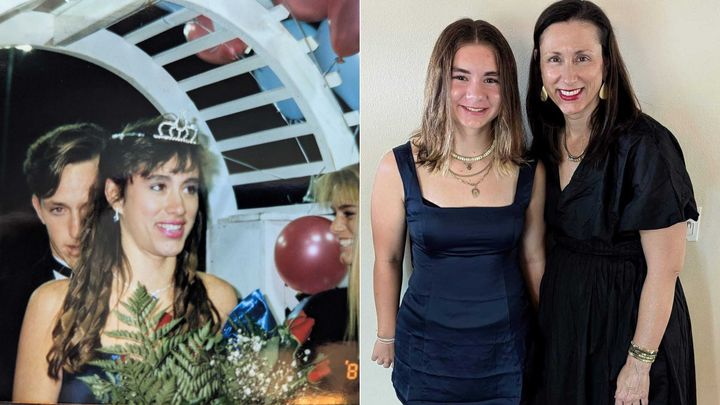News
Do Homecoming Queens Peak In High School? We Asked Them.
Gen Z (and increasingly Gen Alpha), like pretty much every generation before them, may seem too cool for school and too hip to care about traditions from the past. Surprisingly, though, there’s one high school custom they want to keep alive: crowning a queen at homecoming and prom.
According to Google Trends, searches for “homecoming” peak every September and October in the U.S., as schools across the country celebrate school pride and host student dances.
In late September, searches for “how to win homecoming queen” spiked +130% over one week, and searches for “homecoming queen campaign ideas” more than doubled that month.
We shouldn’t be that surprised, though. From Carrie White to Olivia Rodrigo’s tour aesthetic, pop culture is full of representations of girls who’ve been named homecoming or prom queen. (Obviously, Carrie’s experience was less than ideal.) The homecoming queen is a cultural fixture and an enduring symbol of popularity in our minds.
With homecoming season in full swing, we decided to ask former queens about how getting crowned affected their lives later on, if at all. Did they peak in high school, as the cliché about them goes? Are they surprised that running for homecoming queen and king is still something kids are doing? Does being popular in your youth give you a leg up?
See what they had to say below. (Responses have been lightly edited for clarity.)
‘It’s not a high point of my life, it’s more of a core memory.’
“I was homecoming queen at Monroe High School in Monroe, Oregon, in October 1981, when I was a junior. It was a lifelong source of pride for my mom. When I was 30, she still had my picture in her wallet with my date and escort and would tell people when we were out shopping, ‘My daughter was homecoming queen.’ This was after I graduated college and received a graduate degree. I’m pretty sure she brought it up to my kids as well. For her, I think it represented being well-liked and well thought of, and I think that made her proud. A lot of my high school classmates still remember I was homecoming queen and will bring it up in conversation when we’re talking about memories.
“For me, I don’t think it has really impacted my life later on. It’s not a high point of my life, it’s more of a core memory that I reflect on to understand who I was and what I believed in at that time, versus who I am and what I believe in now. And it’s influenced how I parent my kids and what I tell them about high school, popularity and achievement. At the time, I had a view of [the] world that being nice and being liked were very, very important, since that’s what my mom impressed on. That’s diminished over time as I’ve gotten older, but I see those traits in my younger daughter and worry that she will let people define who she is rather than deciding for herself. What I try to convey to my kids instead is to find the things that bring you joy and fill your life with them.” ― Sherri Bliss, a principal program manager who lives near Santa Barbara, California
‘I absolutely see the truth in peaking in high school.’
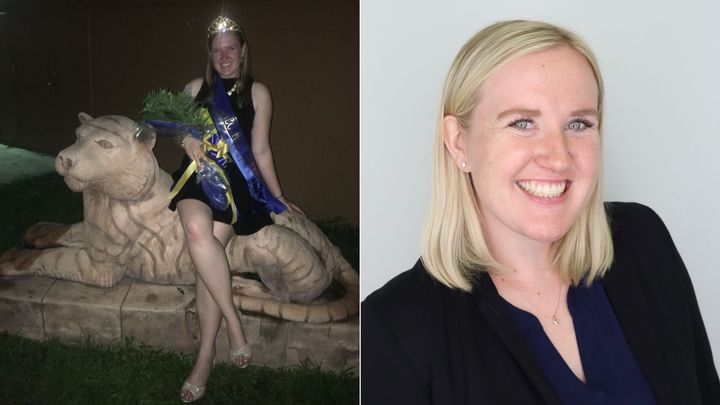
“To get on homecoming court at my high school, you were not allowed to campaign at all. This means that each member of court was voted on, and then again voted on for queen and king selection. I was also class president, and though I had this leadership position, I was still very surprised to have been voted on court. This was at Martin County High School in Florida in the fall of 2016.
“I absolutely see the truth in ‘peaking in high school’ as a result of a homecoming queen experience. But more than anything, it encouraged me to excel further in college and gave me more confidence to be a ‘prominent’ figure in each environment I could see myself in after high school.
“It is a little dated, though. Homecoming ‘royalty’ may be a more inclusive way of electing individuals than the gender binary of homecoming ‘king’ and ‘queen.’ I still see value in this honor being shared. What made my homecoming experience valuable was a lack of campaigning, which I think made it less of a popularity contest. There’s value in it because it helps students develop soft leadership skills and serve as an example to other students.” ― Bridget Duignan, a substance safety coordinator in South Florida
‘Winning wasn’t about what I looked like; it was about how I made people feel.’

“I didn’t put in a lot of work to get people to vote for me, because I didn’t expect it in the first place. As an African American girl with a curvier figure attending a school in a predominantly white, surf-centric town like Huntington Beach, California, I didn’t fit the typical beauty standards. It wasn’t that I thought I was unattractive, but as a dark-skinned, curvaceous teenager, I never saw myself as fitting into the ‘ideal’ beauty mold. I didn’t have skinny legs; I had thick thighs and a booty, and I was actually quite self-conscious about my lower body, wishing I had the quintessential surfer-girl body.
“I remember telling my family not to bother coming to the ceremony because I was convinced I wouldn’t win. After all, the captain of the surf team’s girlfriend ― blonde, beautiful, and everything I wasn’t ― was also on the court. I was just excited to be nominated, and I considered that a victory in itself. But when I heard my name called after assuring my family and friends I had no chance of winning, I was floored.
“That moment in 2000 taught me something I carry with me to this day: Never doubt yourself. I went on to become a TV journalist-turned-public relations agency owner and wellness influencer. Winning wasn’t about what I looked like; it was about how I made people feel. I’ve learned that people will remember you not for how you look or what you do for them, but for how you make them feel. That lesson has impacted how I approach life, relationships, and my career. It instilled a sense of confidence in me that I wasn’t even aware of at the time. It showed me that I didn’t need to conform to societal standards to be accepted, loved, or even celebrated.” ― Jordyn Taylor Dean, a lifestyle influencer who runs the blog Joy with Jordyn
‘I definitely did not peak in high school.’
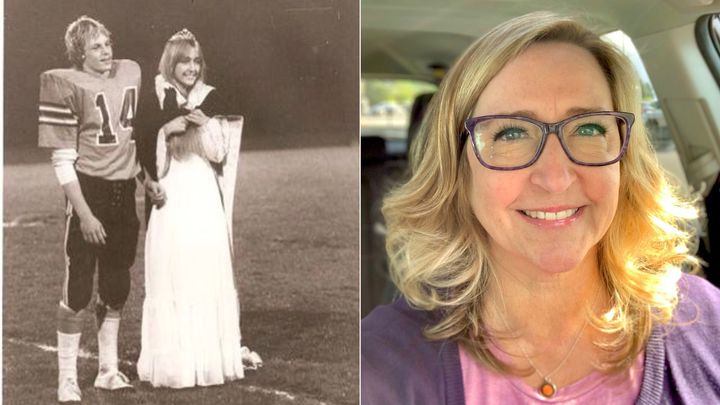
“I don’t think it impacted my life at all that I was homecoming queen. Not to belittle or put down anyone who does say it impacted their life ― that is awesome if it did.
“Nobody who knows me now knows I was homecoming queen in high school, and I doubt my family or friends from that time might even remember. It was back in 1981. After high school, I never talked about it or thought much about it again.
“For me, I definitely did not peak in high school. I did have a fun, happy high school experience, and for that I am grateful, since I know not everyone has that. It was maybe a high point of high school, but it was not a high point of my life. And maybe it is a ‘core memory.’ It may have given me some confidence. I was shy and anxious, but I feel like I hid it pretty well and most of my peers likely did not know that I was so anxious. Maybe I felt a little less anxious and a little more confident in high school after I was homecoming queen.” ― Angela Peene, a program manager for a social services nonprofit in the Pacific Northwest
‘Being homecoming queen helped me manage my ego.’
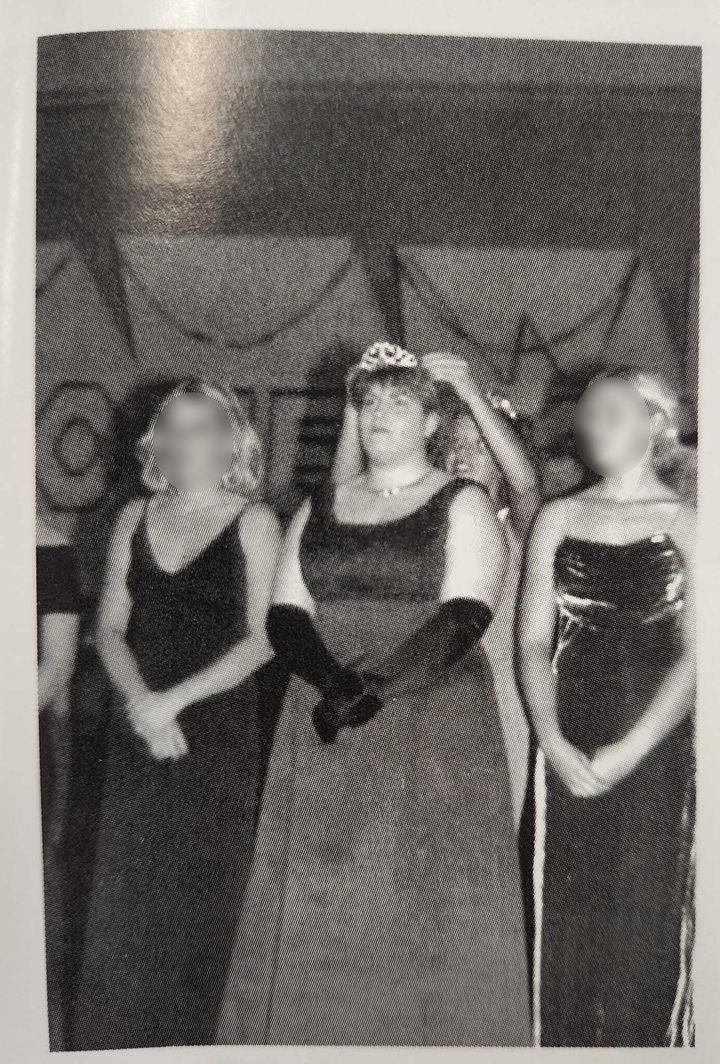
“I was homecoming queen in the fall of 1997 at Waseca High School, and it’s funny how people in my community still talk about it. I currently live in my hometown of Waseca, Minnesota, and serve as the executive director of the Waseca Area Chamber of Commerce, which involves a lot of community work. At first, all the talk felt a bit strange, but now I find it endearing and I’ve embraced it. I even keep my crown in my office and when people ask if I still have it, I’ll put it on, especially during homecoming week. It’s fun to participate in the tradition, and sometimes I go back to watch the new queen and king get crowned.
“I’d say being homecoming queen helped me manage my ego. I have a decent-sized one, but this experience showed me how to strike a balance between confidence and humility. It reminded me that leadership isn’t just about being in the spotlight, but also about using those moments to uplift others. I’ve carried that understanding into my work as a mentor, striving to encourage and support the next generation in a way that helps them feel seen and appreciated.
“I believe homecoming king and queen elections still serve a purpose in today’s society, as long as they focus on more than superficial qualities. If the process is based purely on who’s the prettiest or the captain of the football team, then it loses its value. But if it celebrates students who make a difference, take on leadership roles, and serve as role models, then it has a huge purpose.” ― Ann Fitch, executive director of the Waseca Area Chamber of Commerce in Waseca, Minnesota
‘I had broken some old stereotypes about academic nerds being antisocial.’
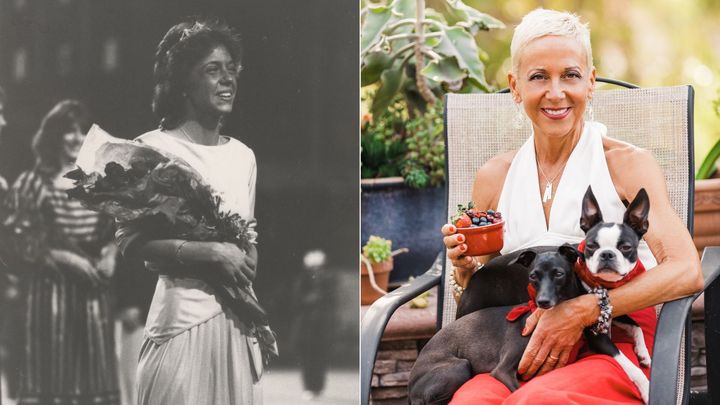
“When I was an undergraduate in college, I was a biology/chemistry major because I was working towards being accepted into veterinary school. When I was campaigning for homecoming queen, I also had campaign posters that we hung throughout campus. It was very important to the head of the biology department that I hang one of my campaign posters outside of the department administration offices. After I won the competition and was taking down the posters, the head of the biology department came out of his office and said he would miss seeing my smile on that poster, and that he never would have believed that a biology major would ever be the homecoming queen. That made me think that I hoped I had broken some old stereotypes about academic nerds being antisocial, because it just isn’t true. Maybe I helped convince some other students that labels we may put on others may not be the whole story.
“Running for homecoming queen took away some of pressures of studying. Sometimes, a girl just wants and needs to have fun, and every woman needs and deserves to be a ‘queen’ for a day in some shape or fashion.” ― Dena Mangiamele, a forensic veterinary consultant in animal abuse and cruelty cases in Southern California
Support Free Journalism
Already contributed? Log in to hide these messages.
‘[I] felt seen for the first time in my life.’
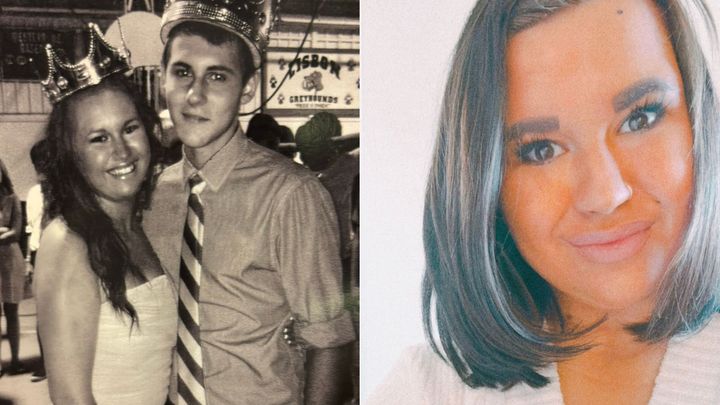
“I was homecoming queen for the class of 2014 at Lisbon High School in Maine. I think there are many misconceptions with the relation of homecoming queen and popularity. One of my best friends owns a clothing boutique that I worked at for many years, and the core of her business runs on the saying: ‘We get so worried about being pretty. Let’s be pretty kind. Pretty funny. Pretty smart. Pretty strong.’ And I think that perfectly encapsulates the feeling of what should be the goal for homecoming queens in today’s society. Just because someone is crowned homecoming queen doesn’t mean they’re the ‘most popular.’ Maybe they are crowned queen because they are kind to everyone, maybe they look out for others, maybe they’re a good friend, maybe they’re a good student or athlete. It could be the fact that I’m 10 years post-high school graduation, and I have seen the true value of female friendships and raising each other, but I believe instead of tearing someone down for being recognized for something good, we should cheer each other on.
“Would my life be the same today if I wasn’t crowned homecoming queen? It very well could be, because I have gotten myself to where I am today on my own. The plastic crown had nothing to do with that. Has it impacted who I am, though? Absolutely. As a very anxious 17-year-old girl, who had low self-esteem, no idea what she wanted to do with her life and was just trying to get through the days while grieving the loss of one of the most important people in her life, being crowned homecoming queen made me felt seen for the first time in my life.” ― Claudia Lemieux, a librarian and freelance artist in Maine

